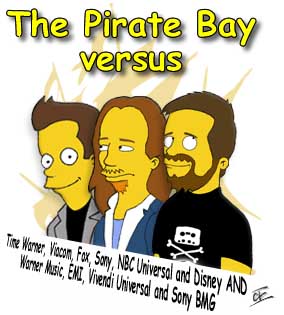
Has Charlie Nesson been at the magic mushrooms again? The hippy head of the Berkman Center, the influential New Age techno-utopian think tank that’s attached to Harvard Law School, wants to enlist Radiohead in his fight against the Recording Industry Association of America (RIAA).
Nesson, a long-time opponent of creator’s digital rights, is contesting the statutory damages in infringement cases. A Boston graduate student called Joel Tenenbaum was ordered to reach a settlement with the record companies after being sued for copyright infringement, having shared files using the Kazaa P2P network back in 2003. Nesson’s strategy in Sony BMG Music vs Tenenbaum is to put the music business on trial. That’s fine – suing freetards isn’t going to stop P2P file sharing and it isn’t going to save the music business. It only adds to the anoraks’ persecution complex. Even the RIAA has now concluded it’s the wrong strategy.
But is Nesson the man to fight The Man? Nesson’s novel argument is that unlicensed P2P file sharing is “fair use”. Even his Harvard students, who are doing the work for him, think that’s stretch. And maybe he doesn’t want to win, just preen about in front of a camera. He wants it televised, he Arse Technica, because:
“It’s like a reality show that we can all be participants in as we go along… It’s an incredibly powerful expansion of the idea of teaching.”
Read more




